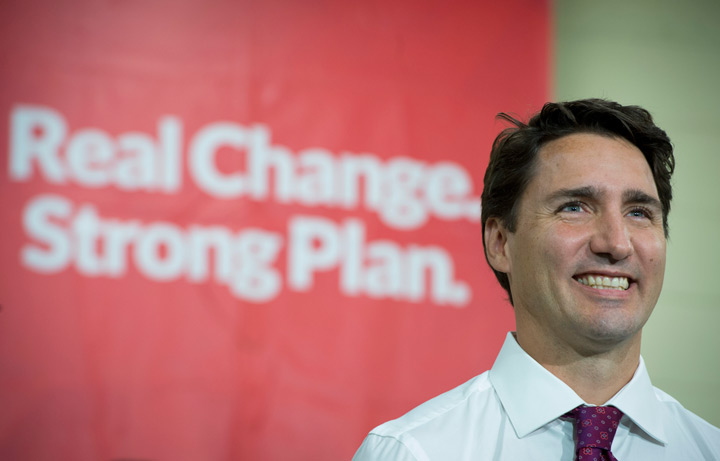The Liberal Party is getting into the rental market.

Leader Justin Trudeau announced Wednesday he’ll eliminate the GST on new rental construction, provide $125 million in annual tax incentives to refurbish existing rentals, and direct the Canada Mortgage and Housing Corporation to provide financing for rental construction as part of a larger affordable housing plan whose details haven’t yet been fully revealed.
It sounds like good news for anyone who’s endured marathon apartment searches in Canada’s most housing-strapped cities. But critics note just adding rental space isn’t enough: You have to make it affordable.
READ MORE: The rental crunch – How a lack of apartments is affecting Canadian cities
Vancouver city councillor Geoff Meggs is watching. “It’s good for the rental sector, very good for tenants and their families,” he said. Half of Vancouver households rent their homes, he said, a statistic that is also true for Toronto.
In Vancouver, said Meggs, the rental market is so tight that many tenants are spending much more than 30 per cent of their income on shelter costs – a standard threshold of housing affordability. And, according to numbers from the Canada Mortgage and Housing Corporation, vacancy rates in the city were at just 1 per cent in 2014.
Cities can’t necessarily count on the private market to create new units.
- What is a halal mortgage? How interest-free home financing works in Canada
- Ontario doctors offer solutions to help address shortage of family physicians
- Capital gains changes are ‘really fair,’ Freeland says, as doctors cry foul
- Canada will take bigger economic hit than U.S. if Trump wins election: report
“The development sector tends to build condominiums because they get their money back right away and they have a very favourable tax situation,” Meggs said. “Rental housing takes longer to get a payout and the tax regime is not as favourable. We really need to see those changes and I think we’d see a big uptake in this whole area.”
Vancouver desperately wanted to encourage more rental construction, said Meggs, so the city agreed to waive certain development charges and parking requirements for developers who promised that a new building would remain a rental for 60 years or the lifespan of the building (whichever is longer).
Although that initiative has seen some success – Meggs says Vancouver is now adding roughly 1000 rental units per year – federal programs like those proposed by the Liberals and NDP would help a lot, he said.
“I think it would produce tens of thousands of units and billions of dollars in economic activity.”
“The benefits are long-term. The rental housing sector is a big part of our economy anyway, but it has been really constrained by a lack of new construction.”
Marion Steele, associate professor emeritus of economics at the University of Guelph, said the problem isn’t just a tight rental market: Lower-income individuals are being priced out, period.
“It’s the problem of the amount of the rents relative to income,” she said. “We’ve got to recognize that big cities need low-income people to do some of the work as well as high-income people.”
One way to encourage low-income people to stay in a city is to offset their high housing costs with a subsidy, she said.
Another is to build more rental housing geared to the lower-income market. That could mean rent geared to income, or rents “substantially below” market rate, she said.
Under the American program, owners of some affordable housing projects receive tax credits. Most units have to be rented out to tenants who make below the local median income and developers compete for a limited number of credits. The program has been fairly successful in the U.S., Steele said.
But why should Ottawa get involved in rental housing at all? While governments have tussled over whose responsibility this should be – and calls for a national housing strategy have so far gone unaddressed – Steele said it ultimately comes down to cash.
“It’s the federal government that has the money.”



Comments